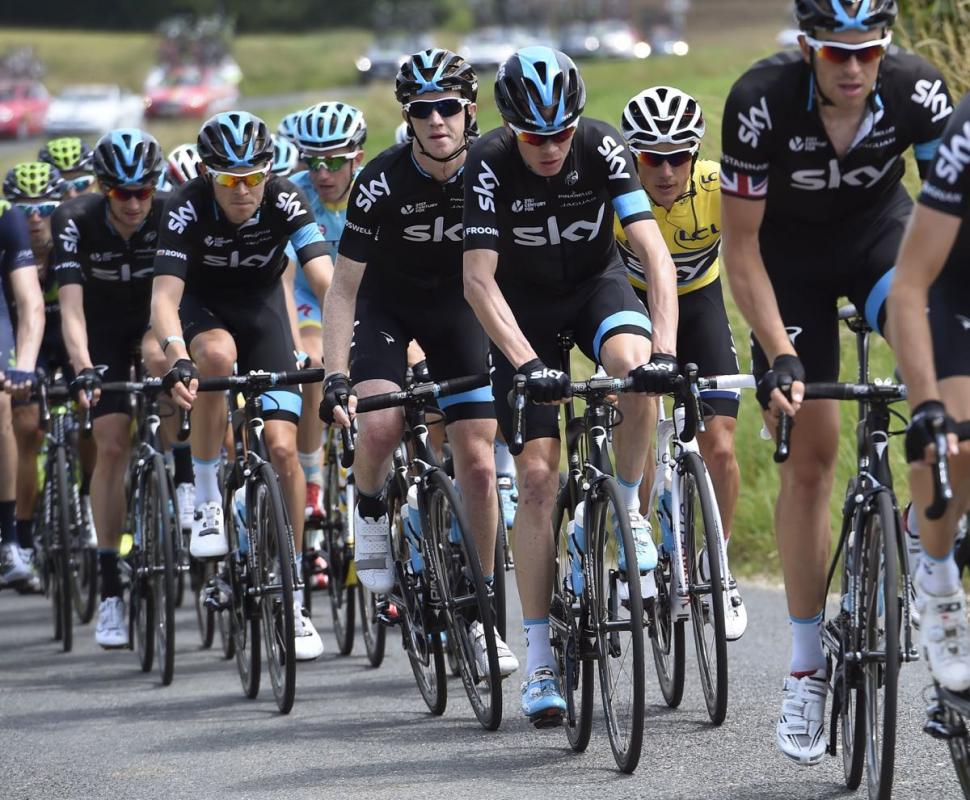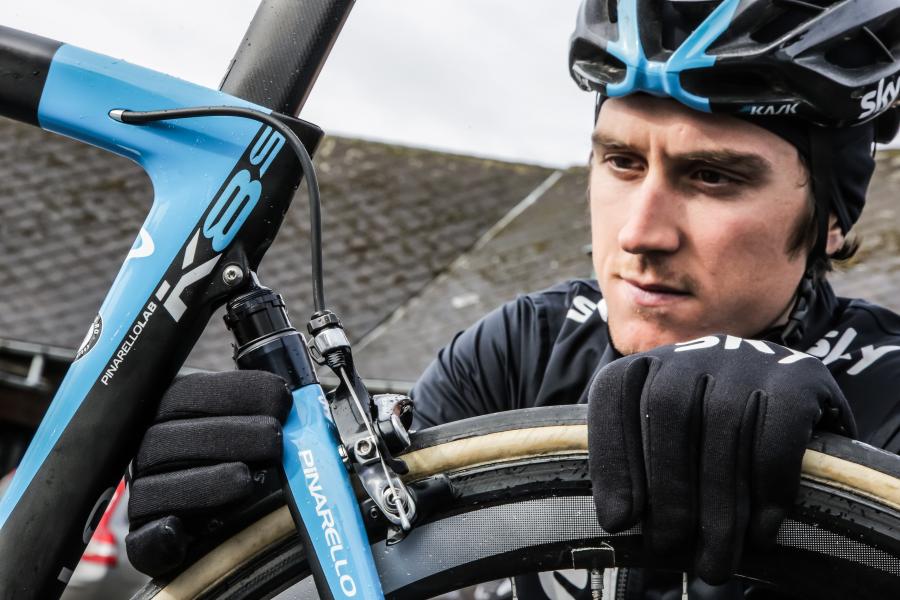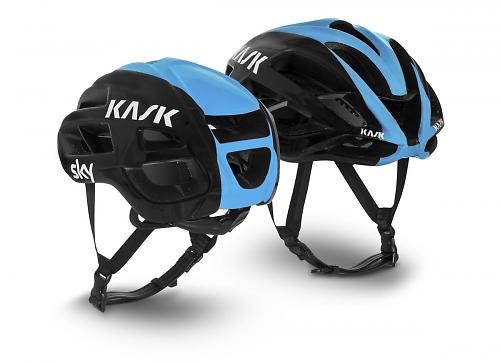- News
- Reviews
- Bikes
- Accessories
- Accessories - misc
- Computer mounts
- Bags
- Bar ends
- Bike bags & cases
- Bottle cages
- Bottles
- Cameras
- Car racks
- Child seats
- Computers
- Glasses
- GPS units
- Helmets
- Lights - front
- Lights - rear
- Lights - sets
- Locks
- Mirrors
- Mudguards
- Racks
- Pumps & CO2 inflators
- Puncture kits
- Reflectives
- Smart watches
- Stands and racks
- Trailers
- Clothing
- Components
- Bar tape & grips
- Bottom brackets
- Brake & gear cables
- Brake & STI levers
- Brake pads & spares
- Brakes
- Cassettes & freewheels
- Chains
- Chainsets & chainrings
- Derailleurs - front
- Derailleurs - rear
- Forks
- Gear levers & shifters
- Groupsets
- Handlebars & extensions
- Headsets
- Hubs
- Inner tubes
- Pedals
- Quick releases & skewers
- Saddles
- Seatposts
- Stems
- Wheels
- Tyres
- Health, fitness and nutrition
- Tools and workshop
- Miscellaneous
- Buyers Guides
- Features
- Forum
- Recommends
- Podcast
feature
 Watson Team Sky riding in group
Watson Team Sky riding in groupHow Team Sky develops new equipment
The Tour de France is approaching and that means lots of race-technology innovations being used vsibly for the first time. To find out how the top teams keep achieving those marginal gains we caught up with Carsten Jeppesen, Team Sky’s Head of Technical Operations and the person responsible for their research and development
Carsten has a big challenge ahead of him. As he puts it, the sport is getting “a little bit like Formula 1”. This means that R&D budgets are increasing, but this comes with a dilemma.

“There have been some tremendously big steps made from the different equipment manufacturers in cycling.
“For a number of years it was pretty traditional; not a lot was done. But now you see closed helmets, you see riders basically wearing skinsuits on road stages and so on. The bikes are getting more and more aerodynamic, and getting more and more stiff. So let's say you are cutting off 20% of the total drag of a wheel or bike, or helmet. To do that once again is going to be much more difficult because you’ve already taken the easy steps.
“In Formula 1, they are down to the milliseconds now. When they look at areas where they should spend time and money developing something they will do it if they can gain milliseconds whereas before they had to make a difference of half a second. Before it was worth it, now they are at another scale and that's what's going to happen in cycling as well.”

Certainly not one to underestimate a challenge, Carsten is, he says, very hands on with the companies Team Sky works with. Team Sky works with Kask on helmets, Rapha on apparel, Pinarello for bikes, Fizik for saddles, Pro for components, and Shimano for its groupsets. Added to that are a host of nutrition, tools and training technology partners, and Jaguar gives them access to a wind tunnel.
So, where do they begin? What do they look for?
“We know more or less what a total drag of a rider or the unit is, the whole thing. And we try to look as much as we can at the full package, so we make a helmet that fits the clothing and the bike and so on.
“It shows for itself that we were the only test team for Shimano when they launched the new Dura-Ace group.
“What I normally do is speak to our coaches, sport directors, sports scientists as say, ‘Are there any specific or certain demands for the events that are coming up that we need to look at?’
“So, for example, it could be for really windy stages in the Vuelta – would it make sense to have a certain wheel that is more stable in crosswinds? You could have a helmet with a long tail, do you need one with a shorter tail?
“The worst thing that we can do is to make something new that doesn’t improve the old one. We always try to start with that as a baseline and we ask ourselves how can we improve on what we’ve already got.
“Going back to performance, when you look at a bike rider, what are the main things to look at for them to be more aerodynamic and go faster from A to B? So the clothing, the helmet and the bike are very important.”

One of the more visible innovations for last year’s Tour was Team Sky’s new helmet, the Protone. Hitting the shops earlier this year – and our office in January for review – the Protone is the result of computational fluid dynamic (CFD) modelling and wind-tunnel testing, like many other products in the bike world these days. The tech sheets even highlight that the design’s aerodynamics remain unaffected when a rider removes their sunglasses and places them in its vents.
For Team Sky, the Protone is the replacement to the Mojito, worn by Chris Froome and the team during the 2013 Tour de France.

“We were looking at bringing down the drag of the helmet. We were looking at the weight and wanted to keep it as close as we could to the Mojito. Then we looked at ventilation or the cooling effects, and then there were small parts to it such as straps and technical features like the adjustment in the back. And you can call that safety as well, so placement in the right position is important.
“For sure we have made improvements. We know for a fact that the drag from the Mojito to the Protone is another level.”

According to Carsten, the design process, which typically begins at the end of the season, began a little later than normal with Team Sky and Kask having just five months from specification to the Tour. That left little time for multiple safety testing and revision rounds, so it needed to be right first time.
“We didn't have the time we wanted, so instead of making one Protone model we had Kask develop three. All three of them made it through the test. Obviously, we were going to go for the lightest one of those.
“There's the aerodynamics of the helmet, but the fit is really important. Normally you want a helmet that you almost don't feel when you’re wearing it. That's what you're aiming for. That's the goal. The fit and the weight are very important because if it's a heavy helmet on your head you will not forget you are wearing it.
“I also think riders look for something that they think looks good and is well-designed. That is also a part of what we are looking for but it's a helmet so primarily it must provide safety for our riders. They are wearing a highly developed safety feature because that's what it takes just to pass the test and get the helmet approved.”

So how has technology development changed since Carsten joined Team Sky in 2009?
“When we started out we said that our goal was to win the Tour de France with a clean British rider in five years and inspire one million more people to get out riding their bikes. No one thought this was possible but after winning the Tour first with Bradley in 2012 people realised that we wanted to make a big impact on cycling.
“The way we work with our partners and suppliers is key to being a successful team. We have helped establish ground-breaking technology in this sport and we want to continue to find new ways to improve and that means finding those small gains that make a big difference.”
Latest Comments
- mark1a 1 min 35 sec ago
I don't think anyone, particularly manufacturers, are paying RRP for groupsets. Manufacturers will be buying via the OEM channel, and in that 105...
- seven 5 min 14 sec ago
Aye right, of course they do.
- Robert Hardy 12 min 49 sec ago
Currently Nottingham too, an acceptable compromise, electric cars may not pay fuel tax, but those of us who live in terraced properties currently...
- squidgy 15 min 39 sec ago
You might also argue that that the group as a whole were in part responsible.
- pockstone 18 min 34 sec ago
I encountered one of these on an early Sunday morning ride from Porthmadog to Beddgelert I heard it coming but thought it was one of the many...
- eburtthebike 24 min 20 sec ago
I think you may have missed a few zeros. 23 to be precise.
- eburtthebike 31 min 21 sec ago
The Labour-run council's leader addressed the axing of the more specific transport role by saying they are "creating a new cabinet portfolio...
- momove 36 min 59 sec ago
Root cause identified.
- open_roads 48 min 23 sec ago
It's not the whole story though. Reduced profit may also reflect increased investment in the business e.g. factory / equipment / research /...
- ritxis 1 hour 3 min ago
Shimano has not launched anything...the next thing will be the GRX Di2 12....what is now just a patent as it publishes from time to time (just...
Add new comment
4 comments
So are there any secrets? All we are told is the brand names (not a secret) and that Kask's new £200 helmet is better than the old one (hardly surprising, but £200 for a bit of polystyrene? Feck me!).
The sport may be "getting a bit like F1" but at least the rider still have to pedal. Don't they?
.... ooh, look what has been published today:
http://road.cc/content/news/155929-mechanical-doping-pro-cycling-story-w...
What a daft comment. Any helmet, is massively overpriced if you are simply judging it by the fact that it's a piece of polystyrene!
The material costs of anything are actually basically nothing, what you are paying for is the time that people have spent designing/creating the product (even the cost of buying the material is actually the cost of someone's time extracting it from the ground and processing it into the raw material, or the cost of someones time creating the machine to do it for them).
So, judge the value of a helmet (or indeed anything else) on whether the features it's been given are of any value to you and the quality of the workmanship, not what it's made out of!
These two sentences should not exist next to each other. That is all:
Certainly not one to underestimate a challenge, Carsten is, he says, very hands on with the companies Team Sky works with. Team Sky works with Kask on helmets, Rapha on apparel, Pinarello for bikes, Fizik for saddles, Pro for components, and Shimano for its groupsets.
Why ? Surely not just the repetition of 'Team Sky works with', please dear God not just that....